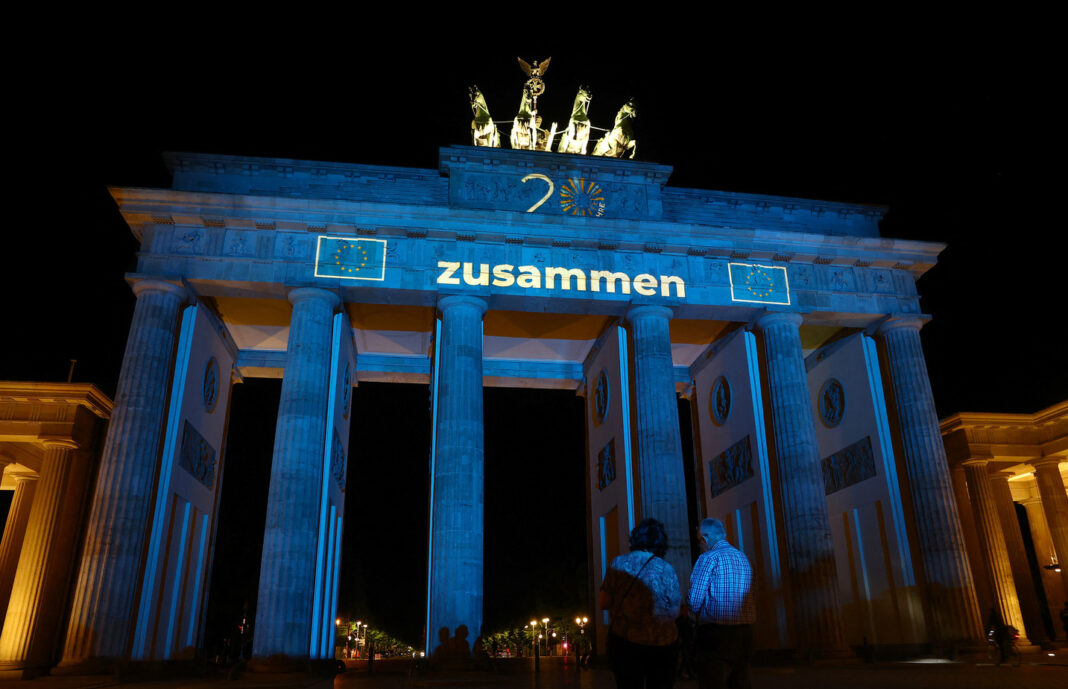Today, the European Union finds itself facing a new prospect of enlargement. In the Balkans, but also on the borders with Russia where, for geopolitical reasons, the candidacy of Ukraine, Moldova and Georgia is supported by many.
Twenty years have passed since the largest and most significant expansion of the European Union.
It was May 1st 2004 and the EU was expanding to the north with the three Baltic Republics, Estonia, Latvia and Lithuania. It added Poland, Slovakia, the Czech Republic and Hungary to its central body, reaching for the first time as far as the Balkans with the entry of Slovenia. And in the Mediterranean it included Cyprus and Malta.
In one night, 10 new member states and 74 million new European citizens became part of the great European project: the Union thus came to count over 450 million people and 25 countries – today there are 27, after the entry of Bulgaria , Romania and Croatia and the exit of the United Kingdom.
Above all, Brussels wiped out the Iron Curtain and the division of the continent that had existed from the end of the Second World War onwards.
Most of the new members had been part of the Warsaw Pact and the fall of the Berlin Wall was not enough to cancel the differences with Western Europe, which had been united under a common flag for years.
The enlargement of the EU therefore marked a huge change. “It was not just the birth of a greater Union; it was the birth of a new era – declared the President of the European Commission, Ursula Von der Leyen, in the speech with which she celebrated the anniversary – It was a night of promises, because Europe is a promise of freedom and stability, peace and prosperity. And in the twenty years since, this promise has been kept.”
In two decades, the expansion of the Union has attracted extremely mixed reviews.
Which, if we simply looked at the economic data, would be incomprehensible. From a growth and well-being point of view, the 2004 enlargement was indeed a success. When they joined the EU, the 10 new members had an average GDP of up to 59% of that of Europe: today, this percentage reaches 81, showing how much living standards in Eastern Europe have come close to those of the rest of the Union.
The per capita income of the ten states has also increased significantly, approaching the European average and even exceeding it, in the cases of Malta and Cyprus.
But it wasn’t just the 10 new members who benefited from the enlargement: the entire EU was in fact positively affected by a significant increase in trade within it.
However, if the economic and social results have been excellent, it is not easy to sustain the same from a political point of view.
“There are some bumps in the road here, otherwise known as Poland and Hungary, and maybe Slovakia,” notes Michael Emerson, a researcher at the CEPS think tank.
The expansion of the EU was actually designed precisely to have a political effect, in order to bring the new members out of the Soviet orbit and towards an increasingly solid democracy.
It hasn’t always worked, however: in recent years there has been a strong erosion of the rule of law in Hungary and Poland, and Slovakia and the Czech Republic have also led to strong concerns. In Cyprus, entry into the European Union was not enough to unblock the situation of the country, which has been divided into two parts for decades. And in recent years Malta has attracted a lot of attention due to its problems related to corruption.
However, not everyone believes that the political effects of expansion should be considered negatively. “The reality is more complex” underlines the journalist David Carretta on the Foglio. “Poland demonstrates that the forces of liberal democracies can regain power, even when an illiberal regime has taken control of the reins of the state for almost a decade. In the Czech Republic Andrej Babiš did not become an Orban. In the Baltics, the pro-Russian political forces have failed to destabilize the Western course of their pro-European and pro-Atlantic governments.”
Furthermore, the fragilities of the rule of law are not only visible in the 10 states that entered into bloc in 2004, on the contrary, the crisis of democracy is a more transversal phenomenon common to the entire Western world.
The evaluation of what has happened in these twenty years and how well the expansion has actually worked might seem like an exercise in analysis as an end in itself, but this is not the case.
Today, in fact, the European Union once again finds itself faced with the prospect of enlargement. In the Balkans, above all, with Montenegro, North Macedonia and Albania which are the closest to EU membership. But also on the borders with Russia where, for geopolitical reasons, the candidacy of Ukraine, Moldova and Georgia is supported by many. This time, however, Brussels will avoid group memberships unless radical changes occur. Even if the 2004 expansion is not considered a failure, the cases of Poland and Hungary have led to the imposition of more rigid limits for the entry of new member states. And the growth of populism forces European institutions to move carefully, to avoid further difficulties for the European project.
Twenty years have passed since the largest and most significant expansion of the European Union.
It was May 1st 2004 and the EU was expanding to the north with the three Baltic Republics, Estonia, Latvia and Lithuania. It added Poland, Slovakia, the Czech Republic and Hungary to its central body, reaching for the first time as far as the Balkans with the entry of Slovenia. And in the Mediterranean it included Cyprus and Malta.




